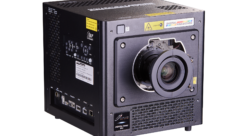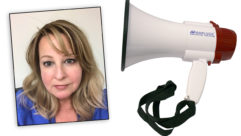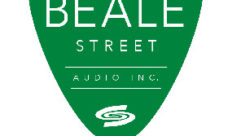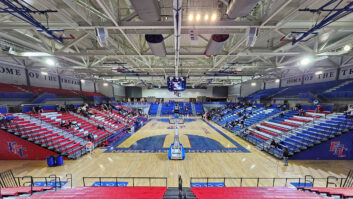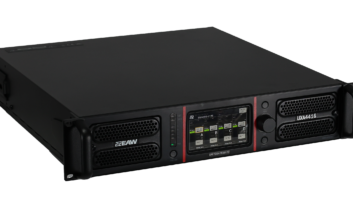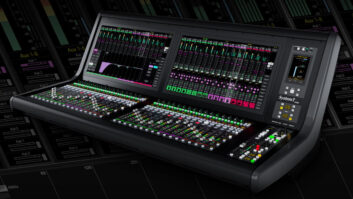Are You Bona Fide?
AUDIO IS an engineering field with some artistic aspects. Many are drawn to it by the art, but once involved realize that technical skills are required to work with sound systems.
AUDIO IS an engineering field with some artistic aspects. Many are drawn to it by the art, but once involved realize that technical skills are required to work with sound systems. One need not be an engineer or technician to become proficient at operating a sound system or mixing a show. But the proper setup and calibration of the sound system has less to do with art and much more to do with science.
Audio people have a responsibility to learn the physics before recommending solutions and implementing gear. Failure to do so can result in misspent funds, bad reputations for both people and gear, and hesitation on the part of customers to make further investments in their audio systems.
Bad advice is epidemic in the audio world. It generally produces unrealized expectations and poor sound quality. If it involves flying loudspeakers or power and grounding issues, it can even kill people.
If you’re going to work in this industry as a technician, you must be bona fide. Because no laws exist to enforce it, it’s the personal responsibility of the audio practitioner to step up to the plate and learn the craft.
AUDIO RESOURCES
Room Modeling Software
- EASEwww.renkus-heinz.com/ease/index.html
- CATT-Acousticwww.catt.se
- Bose Modelerpro.bose.com
Measurement Software
- EASERAwww.easera.com
- SmaartLivewww.siasoft.com
- WinMLSwww.winmls.com
- TEFwww.gold-line.com
- Praxiswww.libinst.com
Audio Test CDs
- Prosonus Studio Reference CD, Big Fish Audio (800.717.FISH). Offers more than 60 tracks, including sine waves at octave centers, pink noise, white noise, TEF sweeps, noise bursts, impulse clicks, 88-note piano scale, and more.
- Intelligibility and Measurement Test CD, Big Fish Audio (800.717.FISH). Designed especially for system intelligibility testing and includes both male and female talkers. Includes printed word lists that can be duplicated for live audience tests of rooms.
For my generation, audio wasn’t really a career path. It’s somewhere you ended up — maybe because you knew how to hook up your stereo or figured out how to operate the PA your band used on weekends. The current generation can pursue a university degree in audio or enroll in a trade school designed to prepare one for work in this industry. This is definitely the route to go if it’s an option for you, as it provides a serial approach to learning the subject.
I recently had the pleasure of conducting an audio training seminar at a major university for some grad students in the audio program. They had the proper mathematical and physics infrastructure, knew their audio basics, and absorbed what I presented like sponges. I only wish I could have started my own career so well prepared. Most people who enter this industry must follow a parallel learning path. The physics is co-learned with the audio theory. While not necessarily the optimum order, it’s reality and still produces competent audio people.
If you’re one of the many people who are on this path, here are some suggested activities for achieving competence in the audio field:
- Start with a love and fascination for audio. This is probably the most important part. Your ascent up the learning curve will require countless hours that aren’t billable, and you’ll have to make significant monetary investments that have no short-term return. Unless you enjoy what you’re doing, you won’t likely stick with it.
- Self-study. Read the classical audio works along with the current technical papers relevant to your specialty (visit www.proavmagazine.com for my complete list of suggested audio resources). Devote some time each day to learning basic math and physics, even if it currently seems unrelated to audio. It will all come together eventually. Self-study also involves hands-on work with audio gear and instruments. There’s absolutely no substitute for this. Only when you’ve measured something has the learning process come full circle. It’s especially important to measure when you don’t think you need to. This either confirms what you already knew, or opens the door to fruitful investigation when it doesn’t.
- Seminars and short courses. Specialized training exposes you to a lot of information in a short period of time. You won’t retain it all, but you’ll at least be exposed to the important facets of the business. The return on investment is a shortened learning curve because the instructor has presumably sifted through the body of information and is presenting the important points in a logical and organized manner.
- Field work. A great way to learn audio is by doing audio. The idealized principles can be learned from a book, but the caveats, “what ifs,” and relevant applications can only be learned in the field. Get out into rooms and work with sound systems. Have some simple meters on hand and use them to dig into what’s going on in the system. One of the advantages I had in being self-employed was the ability to spend extra hours or days on job sites to investigate and learn. These hours aren’t billable to the client, but pay off in the long run.
- Buy some tools. You need some basic instruments to work on sound systems. These include a voltmeter-ohmmeter, impedance meter, polarity tester, sound level meter, and a cable tester. This is the basic stuff for troubleshooting and installing sound systems, and no matter what instruments you acquire later, you’ll always need these items. There are some “do-it-all” testers in the audio marketplace that perform most or all of these functions. These are impressive and capable tools, but I suggest starting with the basic individual instruments and then adding one of the multitesters once you know what you’re testing and why. You may not always have that multitester with you, or it may fail at a critical time. The next tier of instruments includes a decent notebook PC. Some of the best advanced audio analyzers are software-based. Plan on getting a good outboard audio interface to supplement the PC. There’s no limit to where these tools can take you, and proficiency in their use is the mark of a true audio professional.
- Join an email listserv or online forum of audio people. Much can be learned from reading the interactions between those who are working in the field.
The major trade organizations also offer certifications for audio people. While not mandatory to practice audio, pursuing one is highly recommended. Certification will help ensure that your skill set is sufficient, and will set you apart from your competitors. Preparation for certification will force you to crank through subjects that aren’t of specific interest to you. This is a good thing, and will broaden you as a technician.Audio is a fulfilling and rewarding career. We owe it to our customers to become technically competent before we suggest how they spend their money. Competence comes at a price, and requires no less time or investment than preparation for work in any other technical field.It’s not necessary to devote many hours each day to learning. But it is necessary to devote a little time each day — even if it’s just a few minutes. I make it my goal to learn something new each day, no matter how seemingly trivial. Over time these knowledge bytes accumulate and come together to form an understanding of audio systems from the inside out.
The nice thing about the audio field is that you’ll never run out of things to learn, and the knowledge gained never becomes obsolete.
Pat Brown is president of Synergetic Audio Concepts (Syn-Aud-Con) Inc. and Electro-Acoustic Testing Company (ETC) Inc. Syn-Aud-Con conducts training seminars in audio and acoustics worldwide for those who operate, install, and design sound reinforcement systems. ETC Inc. performs precision loudspeaker testing for the audio industry. He can be reached at [email protected].


